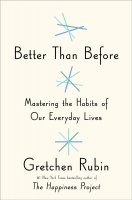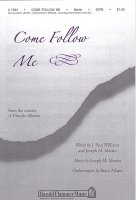Yes, there is something good to be found in television. The signal-to-noise ratio may be terrible, but there's good, too, and today's Memorial Day post was inspired by two shows I saw parts of recently. If the people I honor today didn't give their lives in service to their country, they certainly gave much of their lives to that service.
The first honored the WASPS of World War II, the Women's Airforce Service Pilots, whose courageous story, and our country's shameful response, has finally been told. For too long the first female American military pilots were not only denied veteran's benefits but treated as if their service had never existed. The battle for recognition was a long, slow process, though it kicked into high gear when the military began touting a much-later set of women as the first. You know that an injustice has been done when a cause for which conservative Senator Barry Goldwater fought so strenuously was later acknowledged as right by President Barack Obama. You can see the trailer at this link; I haven't managed to embed it here. Nor does it work for me in Firefox, but it did in Chrome.
The second show mentioned the Hump pilots, also of World War II, and the gratitude the Chinese people still feel towards them. Naturally I thought of Colonel William Bryan Westfall, Hump pilot and veteran of World War II, Korea, and Vietnam. I never met him, as he died before his grandson married our daughter, but I'm grateful to him, for his remarkable military service—and for his family legacy.
Happy Memorial Day to all, and Whit Monday as well, for those of you privileged to live where that holiday is honored, even if its meaning, like that of Memorial Day, is often lost except as an excuse to celebrate.
Permalink | Read 2226 times | Comments (0)
Category Random Musings: [first] [previous] [next] [newest]
Tomorrow is Pentecost, which means this is the last day of the Easter season. Which means ... I'm giving Stephan's new Easter song one more play. For the words and further details, see the original post.
If this video has you scratching your head, just ignore it. It's a little tidbit for a few of my readers while I work on my next book review. But the few ("the happy few") will smile, I think.
Permalink | Read 2151 times | Comments (1)
Category Just for Fun: [first] [previous] [next] [newest]
The Episcopal Church doesn't give secular holidays prominence in the liturgy, hence we are never in danger of becoming, in the words of a friend lamenting practices in her own church, a place where "Mother's Day is a bigger deal than Easter." Not that the day was entirely ignored: women received flowers, and mothers, would-be mothers, and substitute mothers were all acknowledged during the announcements. With sympathy for those for whom the holiday brings sorrow, I think we go too far in saying nothing of substance to anyone lest we should by any means offend some. But I digress. I think the most appropriate thing we did in church in honor of Mother's Day was to sing this anthem. :)

Ave Maria (Giulio Caccini/Patrick Liebergen, Alfred, 20142)
As usual, this isn't us, but we did have the lovely flute accompaniment.
 Pioneer Girl: The Annotated Autobiography by Laura Ingalls Wilder, edited by Pamela Smith Hill (South Dakota Historical Society Press, 2014)
Pioneer Girl: The Annotated Autobiography by Laura Ingalls Wilder, edited by Pamela Smith Hill (South Dakota Historical Society Press, 2014)
As a young child I fell in love with Laura Ingalls Wilder's Little House in the Big Woods, and naturally ate up the rest of the series when I discovered it. The earlier books (particularly Little House in the Big Woods and Farmer Boy) remain my favorites, and having now read Pioneer Girl I better know why. The first few books in the series are full of the delight of a child and a child's-eye view that paints pioneer days with glory: the joy of good work, good food, open spaces, hope, family togetherness, and lots of "Inch by Inch" hippie naiveté. As the story goes on, however, the children grow older, and adult worries and realities intrude. Plus, I've never gotten over my childhood dislike of of romance stories, and if anything, coming-of-age stories are even worse. I identify a lot with Peter Pan.
Pioneer Girl was Wilder's original, unpublished memoir, from which grew the Little House series, as well as many of daughter Rose Wilder Lane's writings. It is full of the adult realities behind all the books. As such, it is informative, even fascinating—but also a sharp reminder that it takes more than a rake, a hoe, and a piece of fertile ground to make a garden, or a life. Don't get me wrong; this is no exposé, revealing the deep, dark secrets behind the children's books. It's just that it made me realize that I'd rather keep my genealogy real and my children's stories warm-and-fuzzy.
There is a lot of genealogy in Pioneer Girl, as Hill has painstakingly identified the people that Wilder wrote of, even in passing. Reading it reminds me of my work for Phoebe's Quilt, only a lot more extensive. "Extensive" is the word for Hill's annotations. Genealogy, comparing versions of the materials, analyzing writing style, researching historical realities, and explaining cultural references in minute detail; whatever it is, Hill's work is extensive. Some of that I appreciated, and some I did not. Although the book is clearly written for adults, Hill seems to assume that her readers are no more knowledgeable than the children who were the intended audience for the Little House series. She explains common cultural knowledge in excruciating detail; had she been analyzing my first paragraph above, she would have provided publisher information for the books, provided the lyrics for the song, explained about hippies, defined the romance and coming-of-age genres, and told the story of Peter Pan, including its author, date of publication, and cultural significance. I have to admit I prefer not to be considered completely ignorant, even if it means I have to look some things up.
Serious Little House devotees will find it worthwhile to read Pioneer Girl. I found it encouraging to learn that while the books are deliberately fiction, and have taken liberties with some of the facts, most notably by leaving out significant events and rearranging the order of others, Little House is no mere "inspired by" work that bears little to no resemblance to the facts. The stories ring true because they mostly are true. But people's lives simply don't unfold the way a good story does, and Laura Ingalls Wilder chose to craft her tales of American pioneer life with all the skill of a novelist.
She was a faithful reader of this blog, and even made several comments. She wasn't always a part of my life, but one of my earliest memories is of her family moving into the house across the street from us in Scotia, New York. She and my mother became good neighbors and even better friends. Her daughter and I walked to school together, and played together every day until we moved apart—but we kept in touch and are close friends to this day. Ruth welcomed me into their house at all times, even when her children had the mumps and I was trying to catch the disease myself. (It didn't work.)
Although I kept up my friendship with her daughter, Ruth and I lost contact—that's what often happened with different generations in the pre-Internet days. But thanks to e-mail, my blog, and Facebook, we reconnected in recent years, and what a blessing that was. She even came to visit us at the Maggie P. one year! Because my own mother died when I was in my early 20's, by the time I wanted to hear stories of my childhood, I couldn't ask her. Ruth filled some of that gap for me, and I'll always be grateful for what she shared before the years took their toll and made communication difficult. She's free now, and I certainly don't begrudge her the new life, but I miss her, and wish we'd reconnected sooner!
Permalink | Read 2346 times | Comments (0)
Category Everyday Life: [first] [previous] [next] [newest]
I rooted for two horses in this Kentucky Derby: American Pharoah because that's the way I always misspell "pharaoh," and Frosted, because of his unusual color. Of course I put no money on either of them, but it sure was fun watching them come in 1st and 4th!
Generally I'm a very good speller, but "pharaoh" is my downfall. Not this time! (As I understand it, the horse was named via some contest; the contest winner clearly has the same hangup with the word.)
Permalink | Read 2077 times | Comments (0)
Category Everyday Life: [first] [previous] [next] [newest]
 Better than Before: Mastering the Habits of Our Everyday Lives by Gretchen Rubin (Crown Publishers, 2015)
Better than Before: Mastering the Habits of Our Everyday Lives by Gretchen Rubin (Crown Publishers, 2015)
This book started slowly for me, though not for bad reasons: I spent too much time (and not enough) trying to answer some of the self-examination questions Rubin asks at the beginning. It might be useful to revisit them when I'm feeling less time pressure (as if that day will ever come!). I was somewhat frustrated because she keeps dividing the world into categories—Are you an Upholder, a Questioner, an Obliger, or a Rebel? A Marathoner, Sprinter, or Procrastinator? A Finisher or an Opener?—and all too often I find myself a true mélange, which leaves me unable to get as much from her later prescriptions as I otherwise might. I bogged down again over her preoccupation with diet, and her low-carb proselytizing. Finally, however, I realized that my less-than-enthusiastic reaction was primarily due to the fact that not a lot of what Rubin says was new to me. Her Happiness Project books (my reviews are here and here) have many of the same characteristics I dislike, but they were so full of new and fascinating material that it didn't matter. This time it did—or perhaps I just shouldn't have been in such a hurry to read it. This was one of my "How Not to Read a Book" books, and I didn't have the time to festoon it with my usual sticky notes. Hence, you get no quotations.
Be that as it may, there's still much of value, and I may re-read Better than Before at a later date. For now I'll just mention the idea that struck me the most, and which I've already started to implement in daily life: One of the greatest advantages to establishing habits is that it frees us from much decision making. I'm one of those who feels as if I have only so much decision-making power each day, and anything that conserves that supply for more important decisions must be a useful tool.
Rubin's ideas about the usefulness of scheduling, accountability, monitoring, first steps, convenience/inconvenience, habit pairing, and the do's and don'ts of distraction and rewards are not new, but it's helpful to have them together in one book. Better than Before is a good accessory to the Tiny Habits approach.
 The Qur'an, English translation by M. A. S. Abdel Haleem (Oxford University Press, 2004)
The Qur'an, English translation by M. A. S. Abdel Haleem (Oxford University Press, 2004)
In the most important sense, a holy book cannot be subject to review. It matters little whether or not I consider it holy; the fact that others do puts it in a different category of book. For one thing, one must take greater care than normal to be respectful; that is merely good manners. It also means that as a non-Muslim, I cannot adequately judge the Qur'an on the basis for which it was intended, that is, as spiritual guidance and inspiration for Muslims. And yet, just as there is value in reading the Bible as literature, I believe the Qur'an may profitably be read in the same way. Not to mention that it might be valuable to have at least some familiarity with a book that is so important to the two and a half billion or so Muslims around the world.
There is also the problem of reading a translation. To Muslims, as I understand it, the Qur'an is a holy book in a much more literal sense than the Bible is to Christians. That is, the book itself is holy, not just its contents. What's more, it is the Qur'an in Arabic that really matters, in contrast to the Christian idea that the Bible speaks best to everyone in his native tongue. While it is certainly instructive—essential for seminary students and scholars—to read the Bible in Hebrew and Greek, that is not considered a necessary skill for most Christians. For Muslims, however, you're not really reading or reciting the Qur'an unless it is in Arabic. I'm of two minds about this. On the one hand, it's a great unifying factor, as when Latin was essential in the Catholic church, when priests all over the world could understand each other, and the Mass was basically the same wherever you went. But there's no doubt that true understanding is difficult (impossible?) in a foreign tongue.
The Qur'an itself makes the point repeatedly that it is an Arabic revelation—though I can't resist mentioning that the point being made at the time was that it was in a language the ordinary people understood.
I don't have anything to compare it with, but I will nonetheless give high marks to this particular translation. It is not beautiful English, but it is easy to understand, and the translator has provided just the right amount of commentary, that is, enough to provide historical context and explain certain idioms and literary conventions, while not interrupting unduly the flow of the writing.
Despite all the above caveats, I'll share some of my observations, based on a single read-through: (More)
Our friend David, of Mount Sutro fame, introduced me to Trello. I let his invitation languish for several months, and that was a mistake. Trello, a project management and collaboration tool, turns out to be just what I was looking for to organize much of my everyday life.
A Fact: There is no Philosopher's Stone of tools that will substitute for wise action and hard work. We think that if we find just the right diet trick, it will be easy to lose weight. If we discover the best organizational system, we'll start getting things done. We latch onto some expert's ideas of proper childrearing practices in the desperate hope that if we just follow the rules, our children will "turn out all right." Such quests are doomed to failure.
Another Fact: If tools won't do our work for us, they certainly can leverage our efforts to great effect, and finding the right tool for a task is a worthwhile quest. Sometimes the effect of a good tool can, indeed, seem miraculous. It might even be something small and simple, like the Charleston sweetgrass basket that my mother-in-law gave me, years ago. I'm not one for decorative objects, so I put this one on the desk in our front hall, and started tossing my keys into it as I walked through the door. Miracle: no more hunting for lost keys. If they weren't with me, they were in the basket. Period.
I haven't been using Trello long enough to say for certain that it is one of the miracle tools in my life, but it feels so much like one that I can't wait any longer to share it. You can try it yourself by following this link. I don't know if I'll ever use their collaboration features, but it's been great for managing the many lists of my life.
In a nutshell, Trello allows me to create boards. Within each board are lists, and within the lists are cards. Each card can have a title, a description, comments, and more, including checklists. There's more to it, but that's the basics of what I use.
I've tried many ways of organizing, planning, and keeping track of what I do (and want to do), and have found that I work best with some system of to-do lists. I've absorbed a lot of ideas, and Trello doesn't replace any of them, but it helps a lot with implementation. I love making lists, and seeing my work planned out. I love having reminders and inspiration ready to hand. Most especially I love crossing off a completed task. But until Trello I hadn't found a list system that satisfied me.
I've done best with paper lists, but I do many of the same tasks day after day, and get frustrated writing the same things again and again. I've tried making lists on the computer, using Word and Excel, but either I had to accept them as glorified paper lists, or I had to put 'way too much time into trying to automate them as I liked. I wanted checklists, I wanted to drag and drop items—possible with those tools, but I found it too much work trying to reinvent a wheel I was sure should have been invented already. Enter Trello. (More)
This is for everyone, but especially our grandkids. It's a safe video if you watch it here and don't go directly to YouTube. Actually, there's nothing wrong with watching it on YouTube, except that then the comments are harder to avoid. Internet anonymity is an uncivilizing influence. (H/T Susan D.)
I appreciate that I can place books on hold at our library, knowing that they will be set aside for me as soon as they become available. But I do wonder about the timing sometimes. A while back, I had placed holds on Gretchen Rubin's Better than Before, and on Pioneer Girl, the annotated autobiography of Laura Ingalls Wilder. Several people were ahead of me on the waiting list for each of them, so I was not expecting to read them anytime soon, though with one I was much closer to the top than the other. Wouldn't you know, both books suddenly became available at the same time—right before we left for several days out of town. I had to check them out, or lose my place in line, even though neither was suitable for taking with me on the trip.
We returned a week before the books were due. The normal lending period is three weeks, but for popular books it is reduced to two—with no possibility of renewal. Thanks to some other tasks taking top priority after our return, it wasn't until the weekend that I got very far into Better than Before. And Pioneer Girl? It has 400 pages. Wilder's actual text is in larger print, but the bulk of the book is Pamela Smith Hill's copious, detailed—yea, exhaustive—small-print footnotes. I read it in under 24 hours.
That's not how to read a book. It's like trying to quench your thirst while standing under a waterfall: you get exhausted trying to keep your balance, and end up more drowned than hydrated.
Nonetheless, I did get quite a bit from both books, enough for each to merit its own, upcoming, review. At first I was just going to include very brief comments on them in this post, but "very brief" and I don't keep company much. There's a reason my Tweets are mostly hyperlinks back here.





